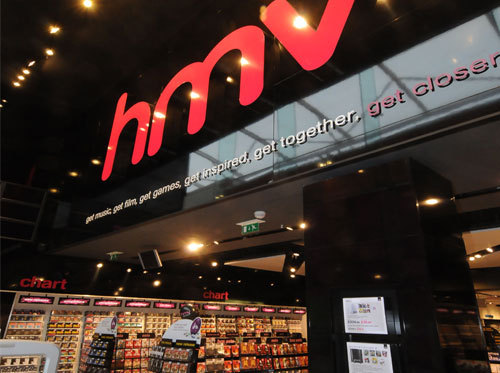HMV has become the second retail chain to enter administration, following the decision by photography chain Jessops to do the same earlier in January.
The business, which sells CDs, DVDs and video games, says that as a result of ‘current market trading conditions’ it faced ‘material uncertainties’ meaning that it would likely not be able to meet with banking covenants at the end of the month.
Accountancy firm Deloitte has been appointed as administrator and will now keep HMV’s 239 UK stores, supporting some 4,300 workers, open while it pursues potential buyers.
In the meantime, trading in HMV shares has been suspended on the London Stock Exchange and the business will now no longer be accepting, or selling, gift vouchers.
In a statement, HMV says that it had continued discussions with banks and other ‘key stakeholders’ to solve the upcoming covenant breach.
However, it adds, ‘The board regrets to announce that it has been unable to reach a position where it feels able to continue to trade outside of insolvency protection.’
More on HMV:
- HMV acquires Zavvi stores
- HMV Group agrees £53 million sale of Waterstone’s
- HMV live music division snapped up by LDC
Commenting on the decision by HMV, Julie Palmer, partner at Begbies Traynor, says that the development was inevitable due to online retailers, downloads and supermarkets combining to ‘marginalise’ a brand which has become ‘out-priced and out-dated’.
Research from Begbies Traynor shows that 140 UK retailers are listed as ‘critical’, while another 13,700 are described as in ‘significant’ distress.
‘HMV’s administration should be a warning shot to the high street that bricks and mortar retail will not be propped up in the face of a migration to online retail and digital products,’ she adds.
‘It remains to be seen what proportion of the HMV estate can be salvaged, with record and film companies keen to maintain an high street portal for hard copy sales.’
Chris Ratten, head of restructuring at RSM Tenon, believes that HMV has shown signs of distress for many months and that the decision to enter administration is not unexpected.
He says, ‘Those retailers who are able to forecast and adapt quickly to customers’ demands and manage their cost base effectively will be those who survive and be successful.
‘In 2012, approximately 1,300 retailers were insolvent, a rise of 7 per cent when compared with 2011. We expect this year to be worse as those who have managed to teeter on the edge for the last few years will really feel the full effects of the reduction of discretionary spending, fierce competition and reducing cash reserves.’






